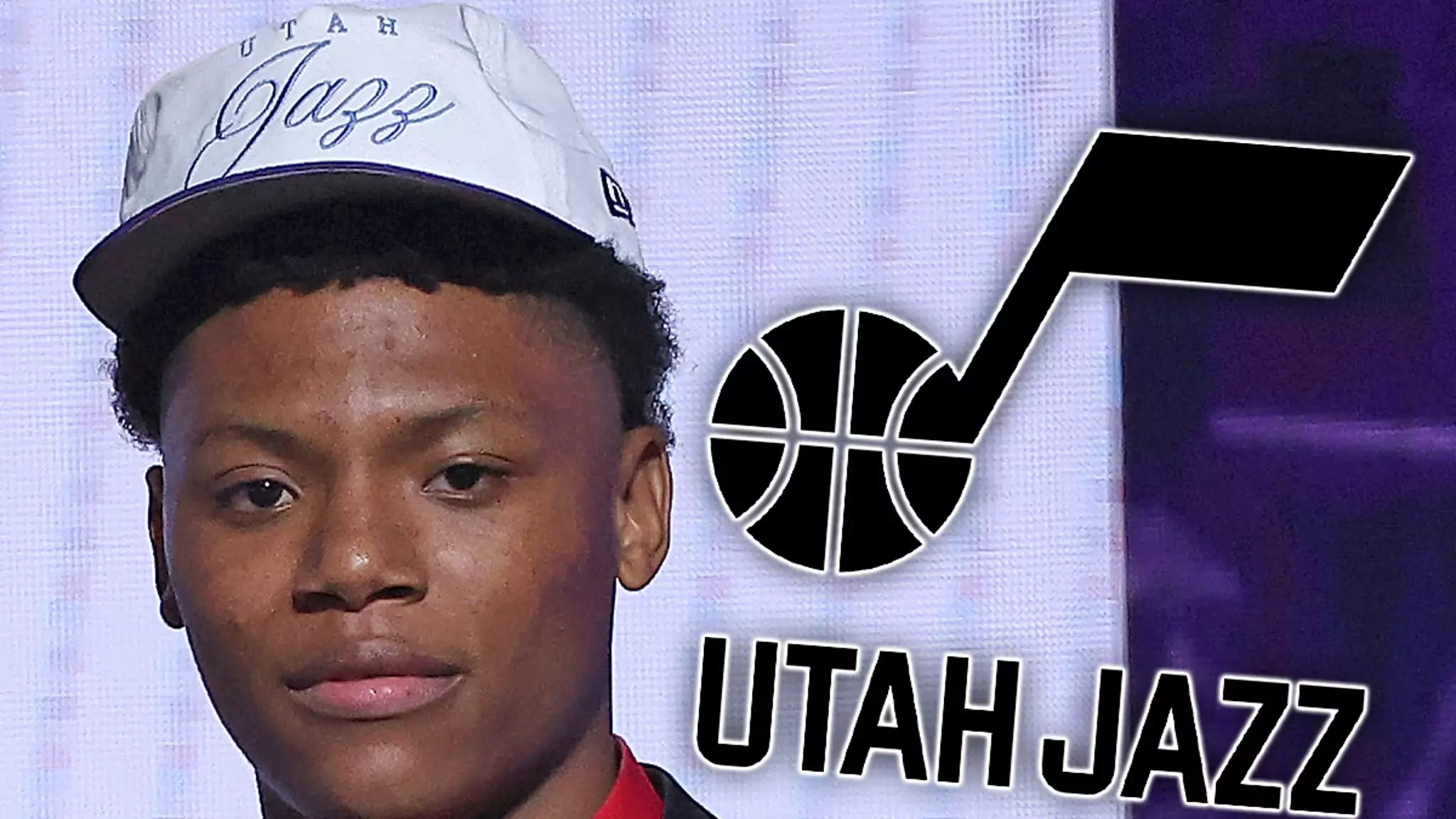The atmosphere was electrifying at Barclays Center during the recent NBA Draft, filled with dreams and aspirations colliding as young athletes took center stage. Among them was Ace Bailey, the former Rutgers star, who found himself selected by the Utah Jazz with the fifth overall pick. Ironically, just days before the draft, Bailey reportedly wanted to steer clear of the Jazz, a team that finished at the bottom of the Western Conference in the previous season. This backdrop adds a layer of intrigue to an already suspenseful evening.
For many observers, the dichotomy between Bailey’s pre-draft sentiments and his actual selection raises questions about the emotional resilience of young athletes in the face of the unpredictable nature of professional sports. As he accepted his new role, Bailey appeared composed, even euphoric, but subtle body language and facial expressions hinted at the internal conflict he may have been grappling with. Was his outward positivity merely a mask for disappointment?
Facing the Critics
One can’t ignore the skeptical voices surfacing from the social media realm, where they quickly declared that Bailey’s smile was forced. When pressed by reporters regarding perceptions of his dissatisfaction, Bailey’s response encapsulated a mature outlook on his situation. “I can control what I can control; they feel how they feel,” he proclaimed. This statement serves as a testament to his character, illustrating a focus on performance and a determination to rise above external opinions. His mindset speaks volumes about the psychological pressures athletes face, which is often compounded during high-stakes moments like the draft.
Furthermore, the revelation from ESPN’s Jonathan Givony that Bailey hadn’t listed the Jazz among his preferred teams adds complexity to the narrative. Bailey had hoped to catch the attention of teams like the Brooklyn Nets or the New Orleans Pelicans. However, in a twist of fate, he landed in a place far from his desire. Acknowledging this reality likely requires a recalibration of expectations, yet Bailey seems poised to make the most of his new opportunity.
Opportunity Amidst Adversity
In the grand scheme of professional sports, teams often represent both a new beginning and a set of unique challenges for their players. Bailey’s choice to forgo pre-draft workouts, the only U.S.-based player to do so, raises eyebrows yet could signify a strategic move. He indicated that he was “working on basketball,” which may underline a commitment to skill development over showcasing athletic prowess to potential suitors.
This decision reveals a level of confidence—an acknowledgement that talent cannot just be tested in drills but must be honed through focused practice. Bailey has stepped into the spotlight of a struggling franchise, and rather than viewing this as a hurdle, he can perceive it as a canvas where he can carve out his mark. If he can channel his energies into benefiting the Jazz, he may ultimately reshape both his own career and the trajectory of the franchise.
Looking Forward
Ace Bailey’s journey underscores a vital lesson for aspiring athletes: adaptability in the face of unforeseen circumstances can yield unexpected blessings. His experience at the draft symbolizes not just the culmination of years of hard work but also the beginning of a new chapter in an environment that might present more difficulties than rewards. Whether he remains internally conflicted or ultimately embraces his role, one thing is clear: Ace Bailey’s story is one of resilience, potential, and the relentless pursuit of greatness in the world of basketball.

